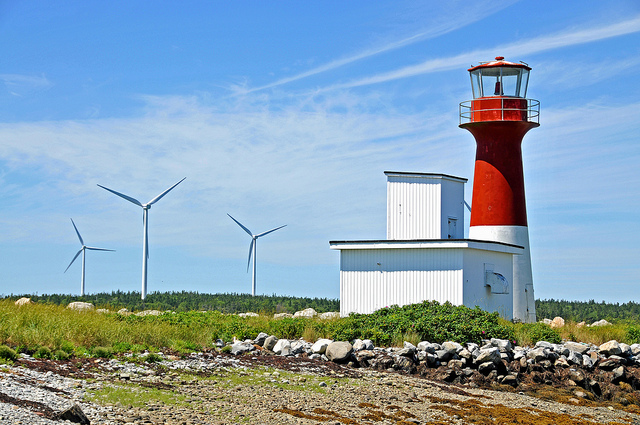The government of Nova Scotia isn’t happy with the federal government’s carbon pricing plan. The Nova Scotia Environment Minister walked out of a federal-provincial meeting, and the Premier is asking the feds to recognize earlier reduction efforts.
The Premier’s line suggests the federal policy is unfair to Nova Scotia, yet recognition for earlier reduction efforts are built right into a carbon tax plan. You only get taxed on what you emit and if you have reduced emissions you avoid the tax. Consider that a $10/tonne carbon tax could increase electric rates by roughly 0.7 cents/kwh (about $84 extra per year on an average bill) based on 2014 emission levels. But, the electric rate increase would have been 0.9 cents/kwh (or $23 more per household) if Nova Scotia had the same emission levels as 2005. When the carbon price is implemented you will be able to thank the earlier reduction efforts for alleviating the costs of the carbon tax.
However, the most important thing about Nova Scotia’s earlier climate action is that it should create the capabilities for the province to reduce emissions even further. Unlike a lot of other places, Nova Scotia’s climate policies (implemented by Conservative, NDP, and Liberal governments) did not just pick the low-hanging fruit. They also helped build up technical and organizational capabilities that could put the province on track to further reductions. For instance, Efficiency Nova Scotia* is a unique organization that other provinces are starting to copy (see Alberta and Manitoba). This organization could significantly ramp up energy savings efforts and reduce emissions at very low cost. The Community Feed-in Tariff program developed a group of people in the province with expertise in the development of renewable energy projects. Finally, both Nova Scotia Power and the government highlighted that the anticipated transmission link with Newfoundland could support further renewable energy development in the province by adding operational flexibility to the grid.
There is a problem, however. A lot of the policies that helped deliver earlier Nova Scotia reductions have stalled. The provincial government capped the efficiency budget in 2015 and 2019, even though energy savings are cheaper than burning coal in the long term. The community renewables program has been cancelled and there are no plans to procure more renewable energy, which is dramatically falling in price. The province seems to be relying on the hydro imports from Muskrat Falls to deliver significant reductions, but this project is facing delays and significant cost overruns, with environmental concerns also being raised.
Instead of asking the federal government to credit past reductions it could argue that it needs credit for future reductions. Nova Scotia might be better placed to cut GHGs given its reduction potential in the electricity sector combined with its technical and organizational capabilities.
Nova Scotia does not face the same challenge as Alberta, which must try and reduce emissions from the oil sands. It then only seems appropriate that the federal government support Nova Scotia through a variety of non-carbon pricing policies (e.g. energy efficiency, green innovation policy, sustainable transportation policies) to help the country meet its GHG reduction goals.
The province also needs to have a serious discussion on how to best use the carbon pricing revenue in a way that delivers equity and economic security. The CCPA’s Nova Scotia Alternative Budget introduced a number of ideas. We need to consider how best to provide support for rural communities, eliminate energy poverty, and reduce energy bills. This calls for a new social bargain on how to ensure energy cost security in a low-carbon world.
Nova Scotia policymakers should have known for some time that carbon pricing is coming. The province should be prepared to succeed in a low-carbon future because of the earlier actions the Premier mentions. It is now time to build on those earlier actions and make the province prosper in a green energy economy.
Brendan Haley is a CCPA-Nova Scotia Research Associate and a Post-Doctoral Fellow at Dalhousie University.
*Full disclosure: the author is a board member of Efficiency Nova Scotia, but is not writing in that capacity here.
Photo: Dennis Jarvis/flickr
Like this article? rabble is reader-supported journalism. Chip in to keep stories like these coming.




